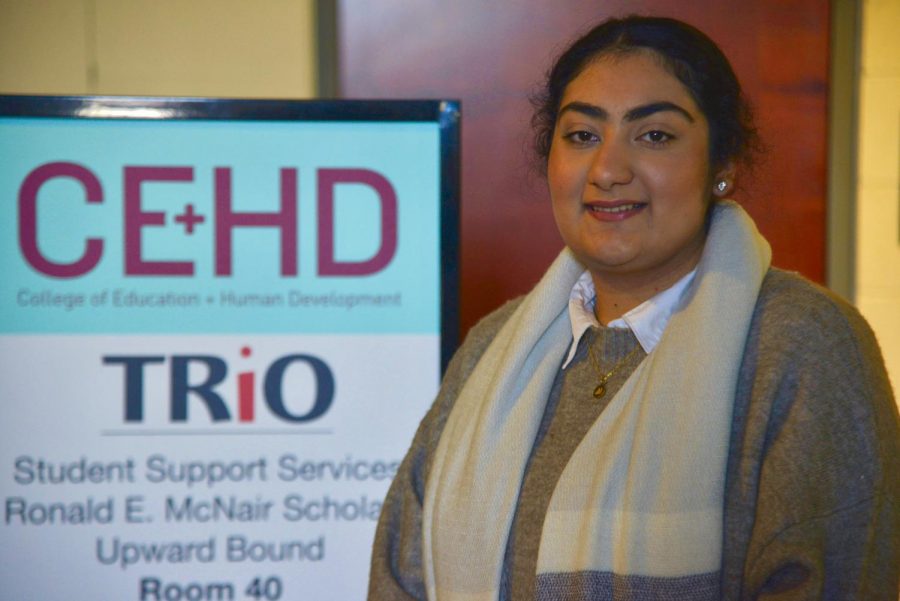Starting next fall, the University of Minnesota’s TRIO Student Support Services (TRIO SSS) will transition from a two-year to a four-year program to continue supporting students from low-income, first-generation and disadvantaged backgrounds throughout their undergraduate college careers.
Last August, TRIO SSS received a grant to make the change possible. TRIO SSS is a program within the College of Education and Human Development (CEHD) that offers advising, financial aid counseling, academic support and more.
Before the new grant, students had to leave the TRIO SSS program after reaching the end of their second year. However, the now-four years will help advisers build deeper relationships with their students and continue helping them navigate the University.
Ruth Cardenas, a TRIO SSS adviser, said TRIO SSS was a two-year program because it was a part of the University’s General College, which served students underprepared for post-secondary education in subjects like English, writing and math. But when the Board of Regents voted to close the General College in 2005, CEHD adopted the TRIO SSS program, and it remained a two-year program, she said.
“In order to serve our students more robustly, we need to transition to be a four-year program. So then we can also provide services for our third- and fourth-[year] and on students,” Cardenas said. “So we stay with them, and we can better serve them throughout their whole time at the University of Minnesota.”
Second-year business, marketing and education student Fatima Altaf said in an email to the Minnesota Daily that she will be staying in the TRIO program throughout her four years.
“When I found out that the TRIO program at the U is transitioning to a four year program I was so happy and excited because I didn’t want to leave my TRIO SSS advisor [Ah Vang-Lo] who has been so supportive and helpful throughout my journey. I would never want to leave that support system nor do I plan [to],” she said in the email.
In March, three advisers for TRIO SSS — Cardenas, Vang-Lo and Ryan Hanson — will be honored with the 2021 Ski-U-Mah Collaboration Award from the University’s Academic Advising Network for their work transitioning the TRIO introduction course to an online format, learning new technology and implementing engaging educational experiences for first-year students.
TRIO SSS advisers work one-on-one with students, teach the TRIO introduction course and lead different initiatives within the program.
“Many of us [come] from that similar background,” Vang-Lo said. “So that gives it a more relatable touch because we know what it is that they are going through and not just within theory.”
Lemlem Jeldo, a fourth-year student, was a TRIO SSS participant during her first two years. Currently, she is a TRIO SSS front desk assistant and a 2019 TRIO McNair Scholar. She said TRIO SSS student workers were involved in the decision-making for new advisers by reviewing their application materials.
“[TRIO SSS] is like a home for me,” Jeldo said. “I never left because … it’s a very great experience having the same similar background with students and getting different resources that can help me succeed in my education.”
Every year, TRIO SSS serves between 270 to 290 students. TRIO SSS students have access to two-credit integrated learning courses that provide smaller class sizes for challenging courses such as biology and psychology. TRIO SSS advisers are also trained to work with students specifically on financial aid.
“Our advising is a little bit more intense than other advising on campus,” Hanson said. “I think we’re the only advisers on campus who have access to financial aid stuff. [Some] advisers are just like, ‘Go talk to One Stop [Student Services].’ [But] we jump in there and dig through it.”
Besides TRIO SSS, there are two other TRIO programs at the University: TRIO Ronald E. McNair Program for graduate students and TRIO Upward Bound for high school students.
“TRIO has helped me shape into a very confident and determined person. It has helped me to be a better version of myself and made me more aware of who I am as a person and what I believe in,” Altaf said in her email. “TRIO has shown me that I am capable of a lot and made me feel confident about being a first generation college student.”


















